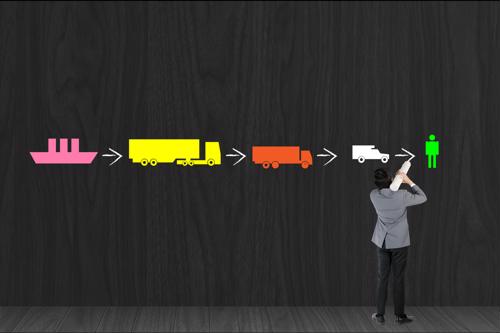
The movement of goods is the beating heart of retail. Without the ability to transport products where they're needed on a tight schedule, companies won't be able to live up to their potential. Supply chain improvements that are relevant across all sectors may have their earliest or fullest adoption in retail, where trends such as the rise of e-commerce are forcing organizations to become incrementally faster and more accurate to stay competitive.
From sourcing to delivery, every step of a product's journey is subject to revision and improvement. Periodic changes in tech standards and norms may have ripple effects that alter the retail world. These updates come in reaction to new customer preferences and can set expectations for the years ahead.
Laying out an ambitious vision
Essential Retail's report from the National Retail Federation Big Show carried predictions from event speaker and Li & Fung CEO Spencer Fung. Fung delivered the view that the next generation of retail supply chains will be based on simplified and expanded contracts with suppliers. While retail procurement may have meant casting a wide net in the past, organizations are hoping to simplify their partner networks and deal with a few mega-suppliers. Fung named BetaBrand as a chain that has already made such a shift and emphasized that efficient processes are the main benefit.
Fast and convenient operations are so important to retailers that they are foregoing potential cost savings and instead streamlining their processes where possible. Fung stated that cost is on the back burner, and that organizations may turn their backs on established orthodoxies, such as saving money with overseas manufacturing. Supply chain elements that add time or complications to operations may no longer be judged worthwhile.
Digital data is the fuel for this efficient new retail model, with Fung predicting that the visibility and operational benefits of tech revision will force companies to evolve. While the advantages of digitized operations are becoming clearer, not every business is ready to seize them. In fact, Fung observed that many of today's retail players still have numerous analog processes in their supply chains. Those inefficient links will be replaced in the name of speed and agility soon.

Companies' level of digital transformation varies across the field, and it's unclear whether the retail sector as a whole is ready to make the jump. SAP's recent study of retail transformation, performed by Oxford Economics, noted more than half of organizations are interested in focusing on strategies that will improve their speed to market. The data also revealed that digital improvement is a priority at 48 percent of the top 100 retail organizations.
As for digital transformation's effects so far, SAP noted that 50 percent of mid-sized companies predict a 5 to 10 percent revenue boost due to their upgrade efforts. The percentage is slightly lower among big companies - with 44 percent expecting the same level of growth - but still represents a significant amount of the overall industry. Rebuilding a sector based on new underlying processes will be challenging, but the efficiency benefits will likely speak for themselves.


Post A Comment:
0 comments so far,add yours